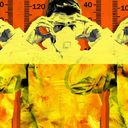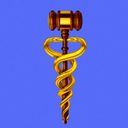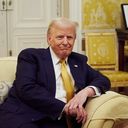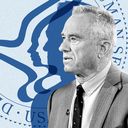NIH chops support for some medical research costs
The National Institutes of Health sent shockwaves through academic research circles late Friday, saying it will dramatically cut the rate it pays for universities' administration and overhead costs to save the government more than $4 billion.
Why it matters: The reductions will particularly hit elite institutions including Harvard, Yale and Johns Hopkins and fulfill a long-sought conservative goal that was included in the Project 2025 blueprint.
- Trump proposed a similar change during his first term, but Congress didn't act. Project 2025 says the reimbursements "cross-subsidize leftist agendas" and that universities use the funds to pay for diversity, equity and inclusion efforts.
Driving the news: NIH, as of Monday, will cap the indirect cost rate on all new and current grants at 15% of the total cost. Reimbursements vary by institution and have averaged between 27% and 28%, with some receiving more than 50%.
- It noted Harvard, Yale and Johns Hopkins each received more than 60%.
- The agency said in a post on X that $9 billion of the $35 billion that it granted for research in fiscal 2023 was used for administrative overhead, as opposed to direct research.
- The reimbursements can be used to cover the cost of lab space, data processing, safety measures for human subjects and to pay support staff, per the Association of American Universities.
What they're saying: "The United States should have the best medical research in the world. It is accordingly vital to ensure that as many funds as possible go towards direct scientific research costs rather than administrative overhead," the agency said in announcing the change.
- But academic research interests predicted the cuts will slow medical breakthroughs, including treatments for cancer and chronic diseases like diabetes and heart disease.
- The reductions "represent the federal government stepping back from commitments it has made to world-leading researchers," said Mark Becker, president of the Association of Public and Land-Grant Universities.
- "This action will slow advances for millions of patients who desperately need critical breakthroughs and imperil the U.S.'s position as the world leader in biomedical innovation," he said.
A senior Democrat in Congress, Sen. Patty Murray (D-Wash.), said the move was illegal because annual spending bills prohibit modifications to NIH's indirect costs.
- She said the move would shift costs to states that can't afford to pay the difference.
Context: President Trump's early actions on federal health agencies included temporarily freezing NIH grant reviews and rescinding job offers.
- NIH has become a frequent target of conservatives, with lawmakers proposing a major overhaul that would include new oversight of research and additional reviews of the process for awarding grants to universities.
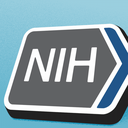
/2025/02/08/1738994505132.gif)
